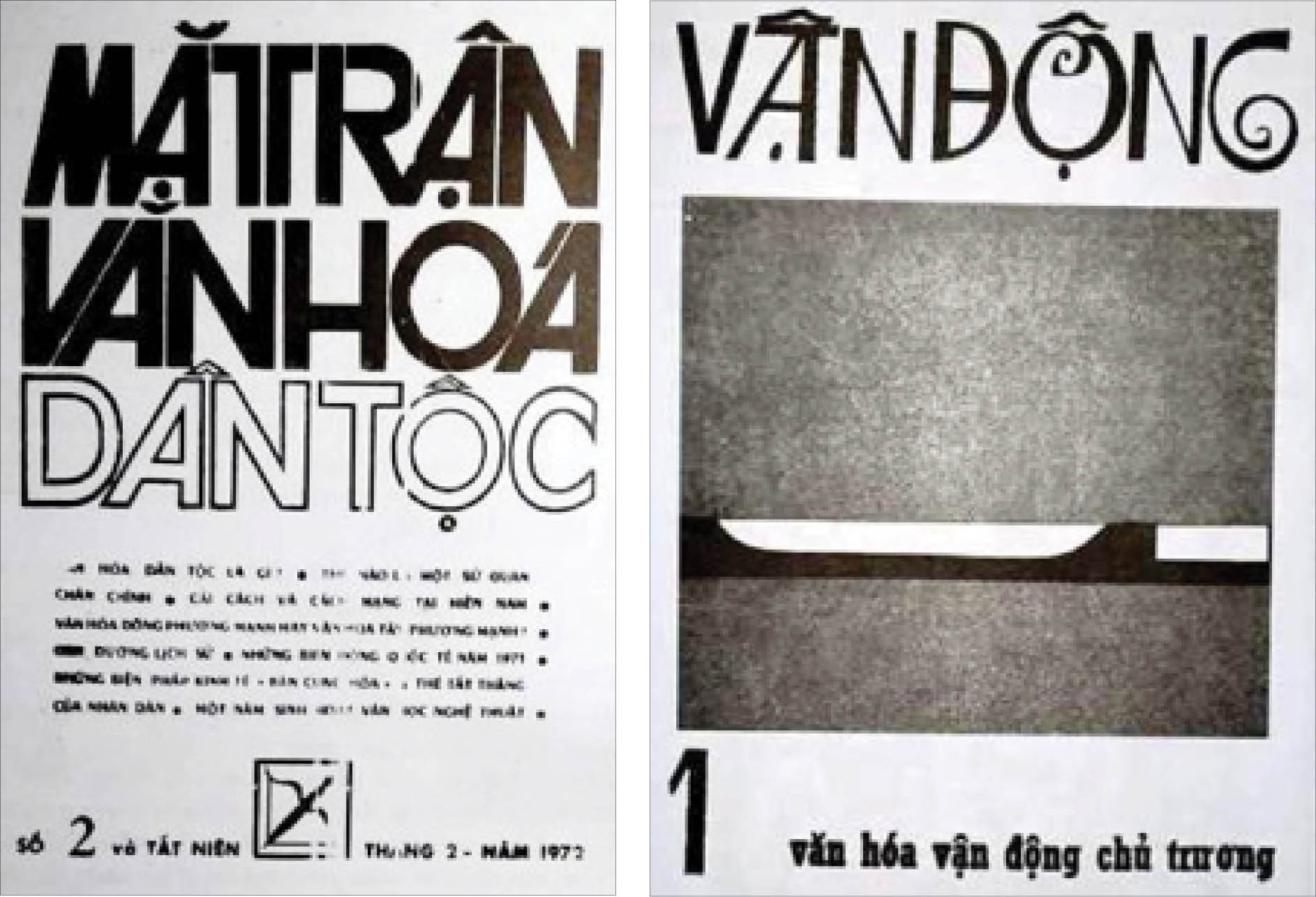 |
| Cover of some issues of the movement's newspapers |
It was in this school environment that I began tentatively venturing into the arts, learning to write poetry, forming writing groups, and creating handwritten and mimeographed newspapers. Around this time, the roar of helicopters taking off and landing behind the stadium, separated from Nguyen Hoang High School by only a long wall, was commonplace. It was the sound of war. Classes were interrupted by the tumultuous noise of the aircraft. From inside the classroom, I could simply lean forward and witness the troop movements departing from and returning from this stadium.
My class was occasionally missing someone, and perhaps it was the same in other classes as well. My classmates would often whisper to each other when someone dropped out to go into the forest. The empty spaces on the desks became big question marks. Painful. The poems of poet Phan Phụng Thạch, written for students during wartime, stirred my consciousness, and my love for my homeland and country was awakened and grew stronger from then on.
Then one day we will see autumn return.
Are the children returning to their idyllic childhood?
Or did the war take them away forever?
And life's journey will be full of mountains and rivers.
In the autumn of 1968, I was transferred from Nguyen Hoang High School ( Quang Tri ) to Hue to attend the First Year C class at Quoc Hoc High School, as Nguyen Hoang High School did not offer the First Year C class at that time (the C class was literature and foreign languages, usually with few students). Coming from a remote province near the border to the ancient capital, I couldn't help but feel bewildered, confused, and even apprehensive in those first few days. I was assigned to be the head of the journalism department at Quoc Hoc High School for the 1968-1969 school year. I saw this as a turning point, my first return to my beloved hometown of Hue after ten years.
In the autumn of 1969, I became a student at the Hue University of Literature. From 1970, the Hue Student Union assigned me to be the head of the press corps, a rather heavy task given my limited knowledge and journalistic skills. Besides the press corps, the Hue Student Union also had the Student Creative Writing Association, led by Buu Chi, a law student; the Student Arts and Culture Group, led by Phan Huu Luong, a student from the Hue Fine Arts School; and the Student Social Work Group, led by Nguyen Duy Hien, a law student. These organizations all had close ties with the press corps in disseminating information and promoting patriotic activities.
The patriotic anti-American movement of Hue's youth and students in the 1970s unfolded in various forms of struggle, both fiercely and violently on the urban streets, and profoundly igniting a fervent and burning love for the country and homeland in all strata of society. Indispensable forms of this struggle included the press, media, culture, literature, and art.
From 1970 to 1972, the student and youth-led resistance press in Hue was simultaneously published, using tip-printed covers and roneo-printed interiors. It was widely distributed among Hue's students and the general population, operating vigorously through various journals and publications. During this period, most articles were written directly by authors on stencil paper, and immediately loaded onto a roneo machine for printing.
The protest press movement has grown steadily in both content quality and quantity. Closely adhering to the slogans of the movements, the protest press in Hue launched a continuous and spirited offensive. With only a rudimentary roneo printing press at the headquarters of the Hue Student Union at 22 Truong Dinh Street, numerous journalistic and literary publications were produced. Notable examples include publications by Hue students and patriotic movements in Hue, such as: "The Call of the Students"; "The Call of Vietnam"; "Hue Students"; "Defending the Land"; "Our Country"... The covers of most of these publications were designed by Buu Chi, a law student and General Secretary of the Hue Student Union.
Besides the newspapers mentioned above, the Press Bloc of the Hue Student Union also publishes the "Dong Bao" book series, the poetry collection "Hoc Sinh" (multiple authors), "Ngay Quat Khoi" (poetry by multiple authors), "Nguon Mach Moi" (poetry by Thai Ngoc San - Vo Que), "Toi Chi Lam Nguoi Viet Nam" (essay by Duyen Sanh), "Tieng Ca Suu Nuoc" (music by Ton That Lap - Nguyen Phu Yen), "Giot Mau Ta Mot Bien Hoa Binh" (poetic drama by Vo Que)...
On the occasion of the 100th anniversary of Vietnamese revolutionary journalism, reflecting on my patriotic journalistic activities during my student years, which fostered aspirations for peace and reunification, has helped me gain a genuine perspective on the daily changes in my homeland.
In the past, the press was a sharp weapon, the voice of the nation in the struggle for independence and unification. Articles, reports, and images from the street front both contributed to denouncing the enemy's crimes and aroused patriotism and solidarity among the young students of Hue with the people of Hue.
Today, with the country at peace and developing, I believe that journalism still plays a crucial role in building and protecting the nation. However, the new context presents new challenges. The explosion of information technology and social media has created a diverse and complex media environment. Mainstream journalism faces fierce competition from unofficial sources, fake news, and misinformation. How Vietnamese journalism can continue to play its role in guiding public opinion, shaping values, and protecting national interests in this new context is a matter I constantly ponder and worry about.
I have high expectations for improving the quality of content, innovating the methods of delivery, and strengthening the professional ethics of journalists today, including the joint efforts of the entire society in building a healthy, honest press that serves the interests of the people and actively contributes to the sustainable development of the country. I believe in a Vietnam that is increasingly prosperous, civilized, and happy when the press plays an important role in promoting social progress, enhancing understanding within the community, and protecting traditional national cultural values.
Source: https://huengaynay.vn/chinh-polit-xa-hoi/mot-thoi-lam-bao-phong-trao-154732.html















![[E-Magazine]: A package of love, wrapped in a greeting card](https://vphoto.vietnam.vn/thumb/402x226/vietnam/resource/IMAGE/2026/01/02/1767360596935_e-magazine-goi-w1200t0-di2600d199d5163304t11920l1-kyt-023.webp)

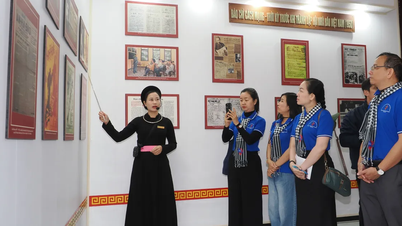

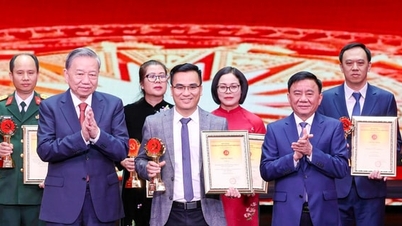

























































































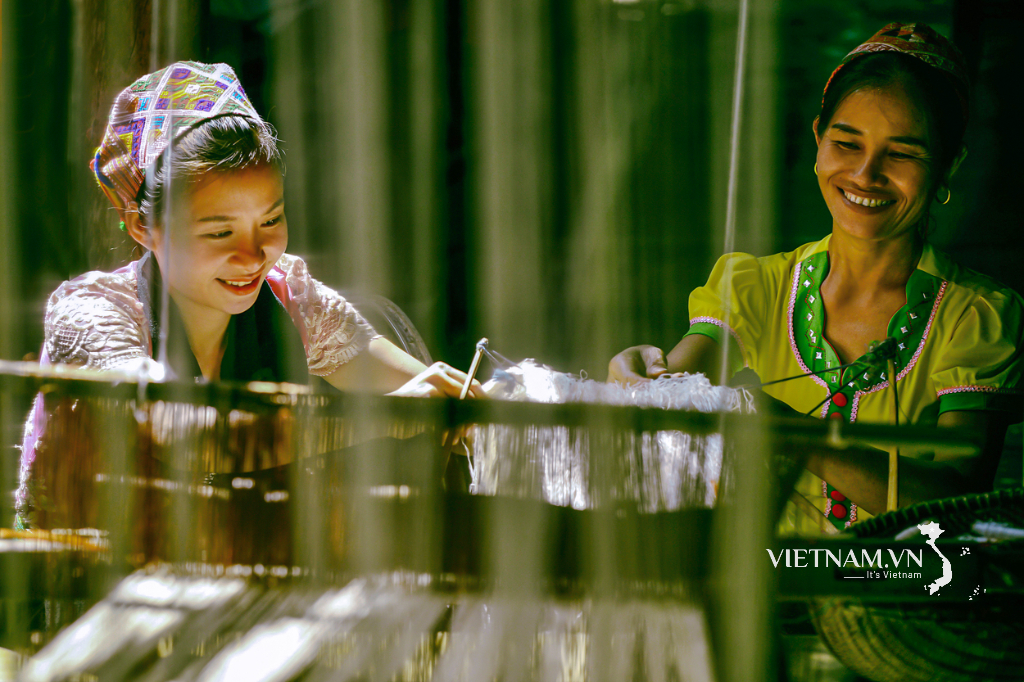
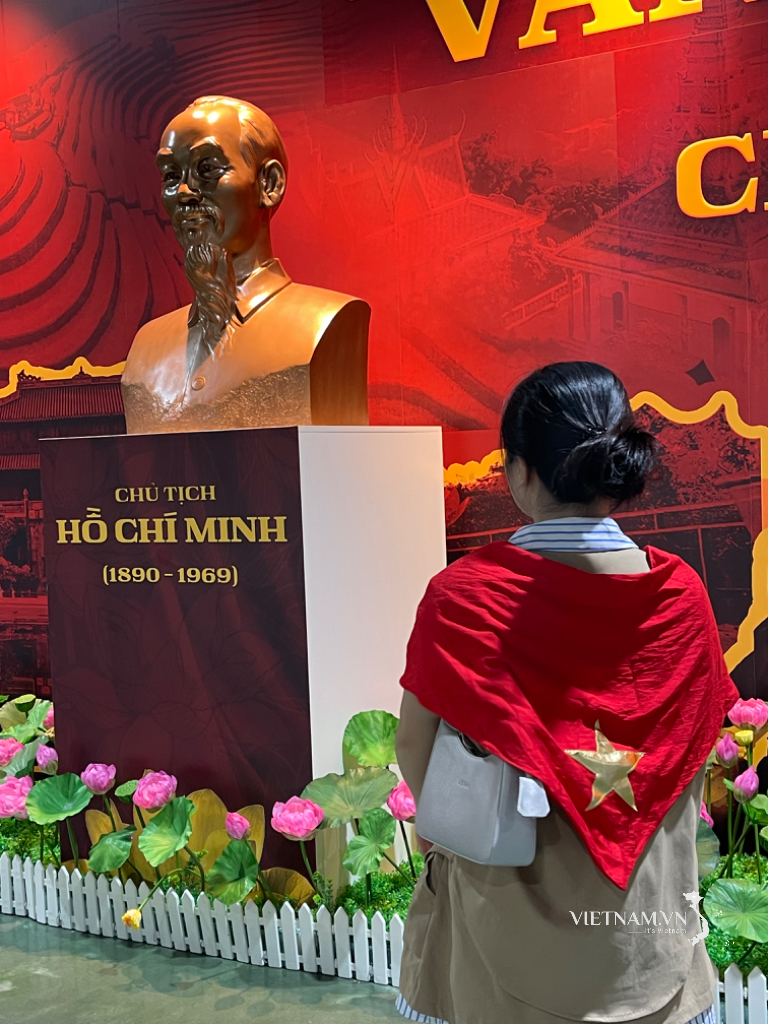

Comment (0)